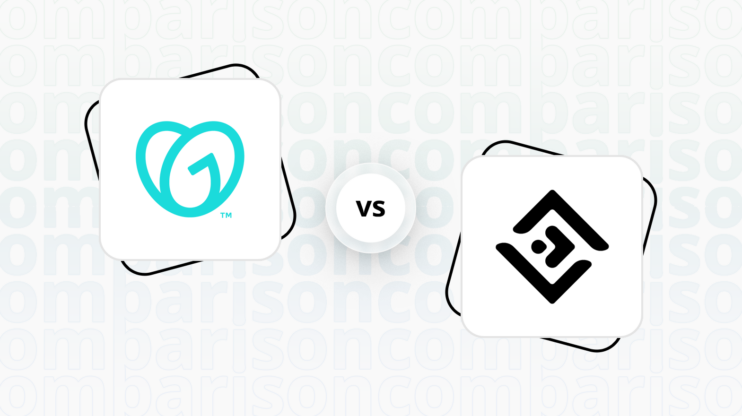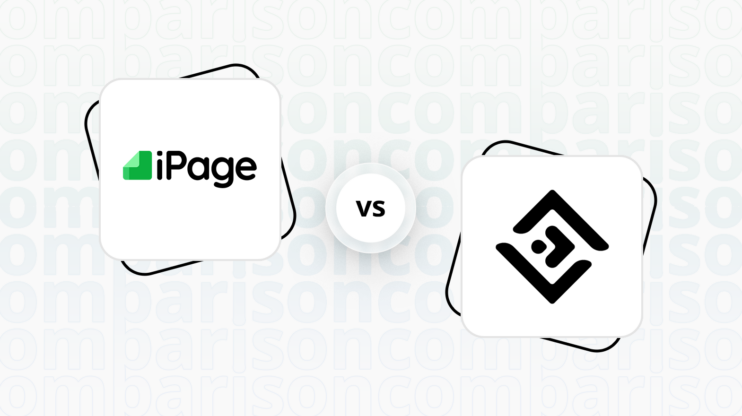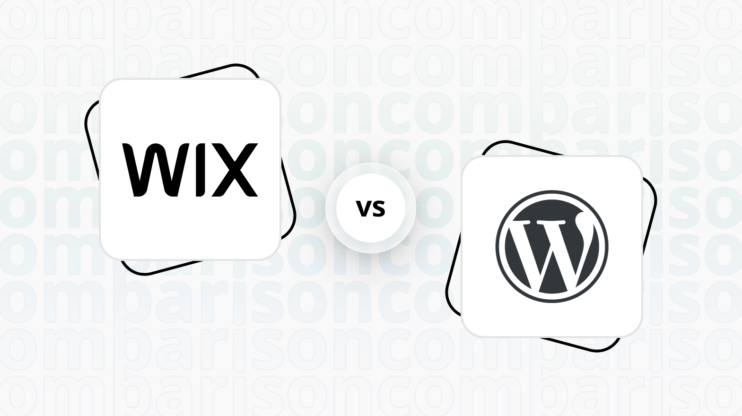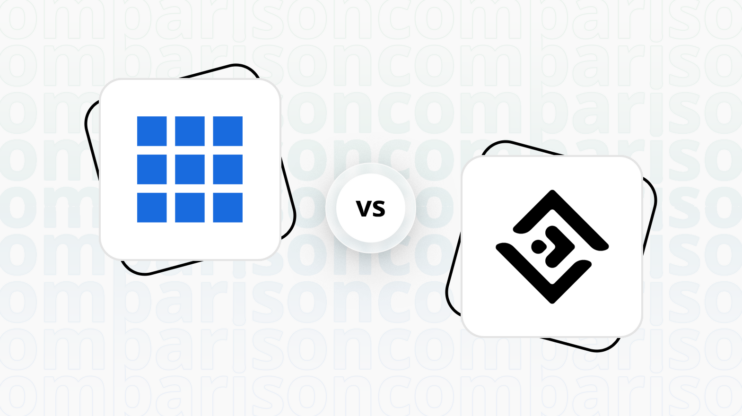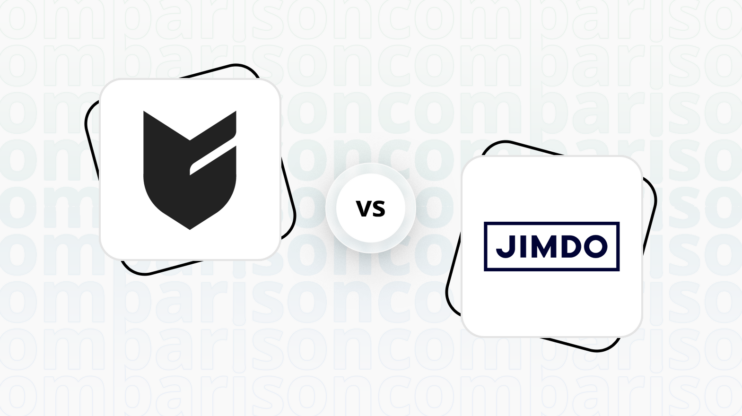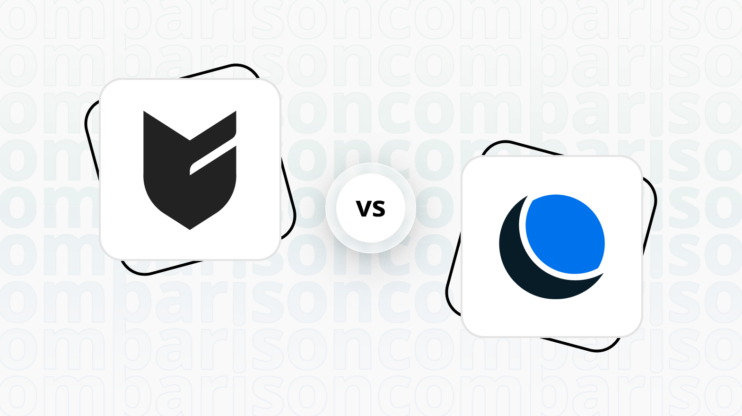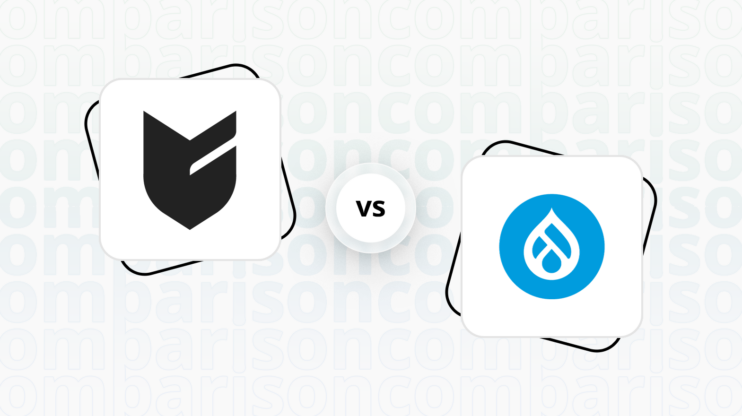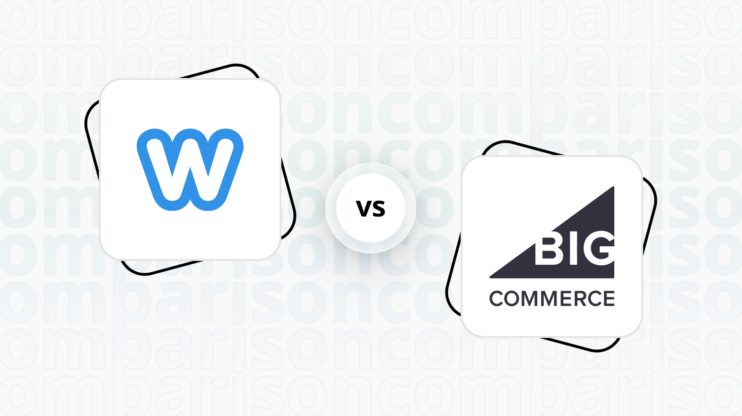Final verdict
Between GoDaddy and iPage, GoDaddy emerges as the more versatile and robust platform, particularly for users looking for a comprehensive website building and hosting solution.
-
GoDaddy (Overall Grade: 7.5/10)
excels with its wide array of templates, user-friendly design tools, and comprehensive ecommerce features. It’s particularly suited for small to medium-sized businesses looking for an all-in-one platform that combines ease of use with a broad range of functionalities, including advanced marketing tools and reliable customer support. GoDaddy’s higher scores in hosting quality, website speed optimization, and plugins and integrations further solidify its position as a strong contender for users prioritizing performance and scalability. -
iPage (Overall Grade: 6.1/10)
, while offering a user-friendly platform with a focus on simplicity and affordability, tends to cater more to individuals and small businesses with basic website needs. Its partnership with Bluehost aims to enhance hosting capabilities, but it still falls short in areas like ecommerce features, website editors, and product testing options compared to GoDaddy. iPage’s strength lies in its security features, making it a viable option for users who prioritize website safety.

|

|
|
|---|---|---|
|
Design functionalities & templates |
8.0 |
7.0 |
|
Ease of use |
8.2 |
7.6 |
|
Ecommerce |
7.2 |
5.7 |
|
Website Editors |
6.7 |
6.8 |
|
Product testing options |
8.1 |
2.5 |
|
Price |
7.9 |
7.3 |
|
Hosting quality |
7.8 |
7.7 |
|
Website speed optimization |
7.6 |
7.4 |
|
Plugins and integrations |
7.3 |
6.3 |
|
Marketing features |
7.3 |
7.2 |
|
Customer support |
8.5 |
6.9 |
|
Security |
6.8 |
7.5 |
|
AI capabilities |
7.5 |
3.0 |
|
User Management |
7.3 |
3.2 |
| Overall |
7.5 |
6.1 |
Best for ecommerce
 7.2
7.2
 5.7
5.7
Verdict
: GoDaddy is better suited for businesses looking for a comprehensive ecommerce solution, while iPage is ideal for smaller operations with simpler needs.
-
GoDaddy
: Offers a robust set of ecommerce features including advanced payment processing, shipping options, and marketing tools. It’s designed for businesses that need a wide range of functionalities. -
iPage
: Tailored for small to medium-sized businesses, iPage provides essential ecommerce features like inventory management and PayPal integration, but with limitations in customization and advanced functionalities.
Best for informational & business websites
 7.9
7.9
 7.2
7.2
Verdict
: GoDaddy edges out iPage for informational and business websites, thanks to its higher score and comprehensive features tailored for a broad range of website needs.
-
GoDaddy
: With a score of 7.9, GoDaddy stands out for its extensive collection of templates, user-friendly design tools, and robust hosting options. It’s designed to cater to a wide variety of website types, making it a versatile choice for businesses looking to establish a strong online presence. -
iPage
: Scoring 7.2, iPage offers a solid platform with a focus on simplicity and affordability. While it provides a range of templates and easy-to-use tools, it may fall short in terms of design flexibility and advanced features compared to GoDaddy.
Detailed comparison
Design functionalities & templates
Design FunctionalitiesRepresents how well each platform allows for creative design and customization of websites.Score Components:
- Template Variety (30%): Range and quality of design templates.
- Customization (30%): Flexibility and options for design alterations.
- User Interface (20%): Ease and intuitiveness of the design process.
- Responsiveness (10%): Adaptability to different devices and screen sizes.
- Innovation (10%): Unique design features and tools.
 8.0
8.0
 7.0
7.0
🏆
Winner: GoDaddy.
GoDaddy’s extensive collection of over 1500 website templates and advanced design tools give it an edge over iPage.
GoDaddy provides an extensive collection of over 1500 website templates catering to diverse industries and design preferences. These templates cover business, ecommerce, creative, personal, and non-profit sectors, offering various styles such as modern, classic, bold, minimalist, and content-focused. With customization options, mobile responsiveness, and a combination of free and premium templates, GoDaddy aims to meet the needs of users seeking versatile and visually appealing website designs.
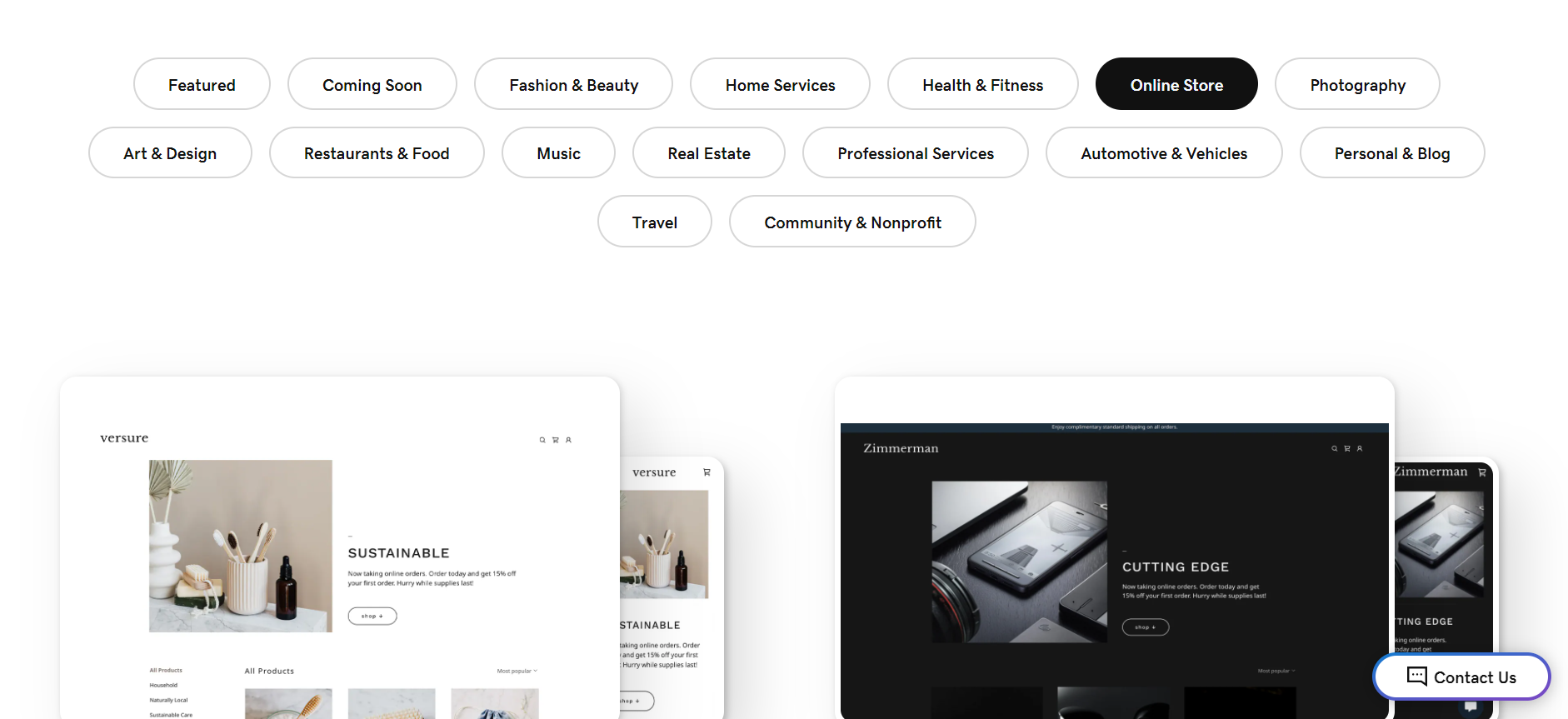

On the other hand, iPage offers a wide variety of templates and designs, catering to users with diverse needs and preferences. With hundreds of options available, ranging from simple and elegant to complex and dynamic, users can easily find a template that suits their specific project or business requirements. These templates are also customizable, allowing for a high degree of personalization in terms of layout, color schemes, and functionality.
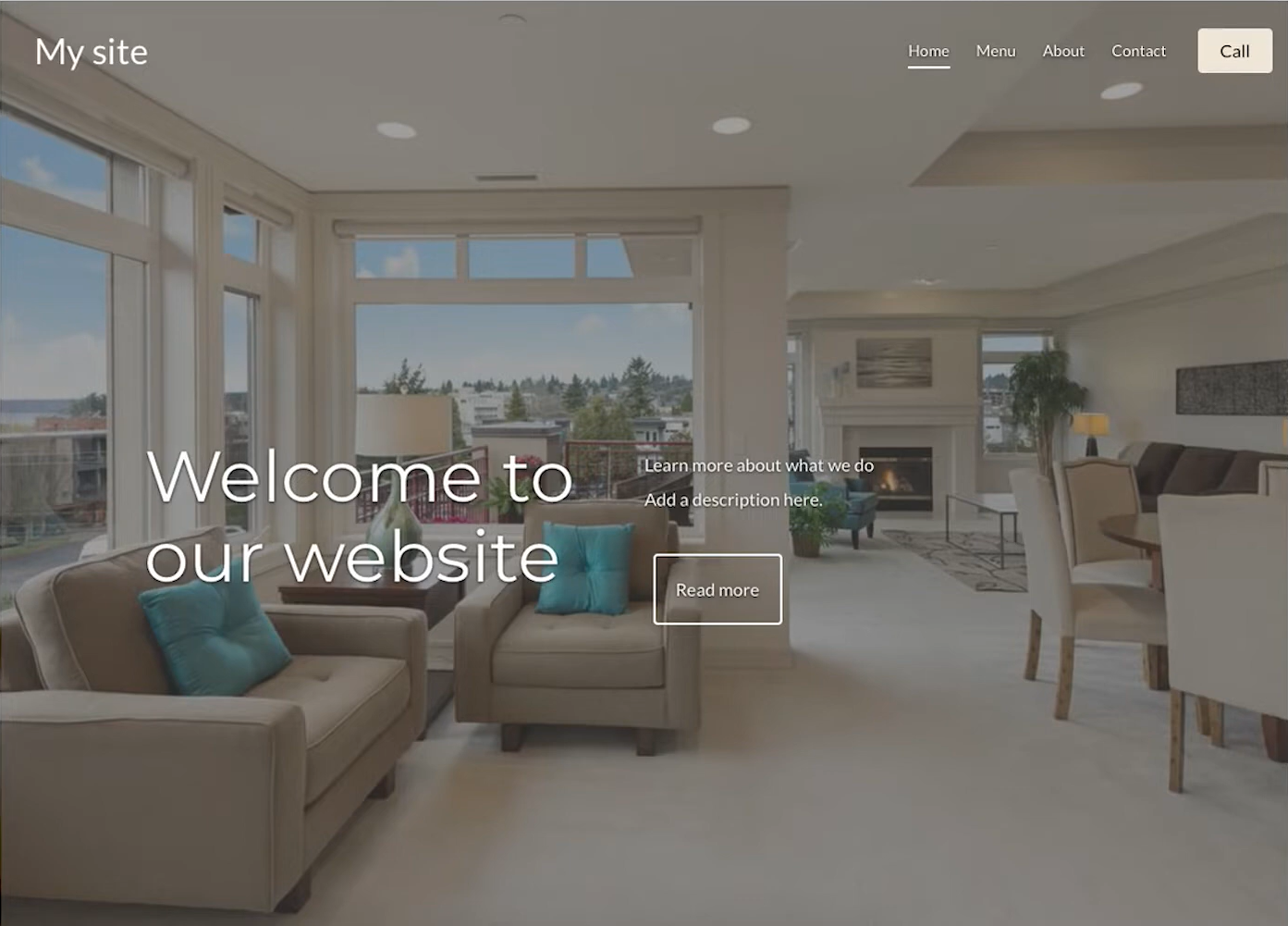
Get a head start on website creation with AI
Create a custom website tailored to your business needs 10X faster with 10Web AI Website Builder!
Ease of use
Ease of useReflects the platform’s overall user-friendliness.Score
Components:
- Learning curve (40%): Quickness and ease of getting started.
- Interface design (30%): Simplicity and intuitiveness of layout.
- User guidance (20%): Quality of tutorials and support.
- Flexibility (10%): Adaptability to various user skills.
 8.2
8.2
 7.6
7.6
🏆 Winner: GoDaddy
. Scoring 8.2, GoDaddy’s user-friendly platform is popular among beginners due to its drag-and-drop interface, WYSIWYG editor, and mobile-responsive templates. iPage, with a score of 7.6, also provides a user-friendly experience, but some users may find the design options somewhat limited compared to more advanced website builders.
Learning Resources
🏆 Winner: GoDaddy
. Both platforms offer a range of learning resources, but GoDaddy provides a more comprehensive set for its website builder, including online documentation, video tutorials, community forums, and live sessions. iPage also offers a variety of learning resources, but the availability of direct, personalized support might vary, depending on the plan a user subscribes to.
For ecommerce
EcommerceMeasures the platform’s effectiveness in supporting online business activities.Score Components:
- Ecommerce themes and templates (20%): Variety and design of templates.
- Product management (25%): Ease of managing and organizing products.
- Payment options (25%): Variety and convenience of payment methods.
- Ecommerce features (20%): Features for managing an ecommerce store.
- Integration (10%): Compatibility with external e-commerce tools and services.
 7.2
7.2
 5.7
5.7
GoDaddy and iPage both offer ecommerce capabilities, but they cater to different business sizes and needs. GoDaddy provides a more comprehensive set of ecommerce features, making it suitable for businesses that require a wide range of functionalities. iPage, on the other hand, is more suited to small to medium-sized businesses with simpler online store setups.

|

|
|
|---|---|---|
|
Ecommerce themes and templates |
6.5 |
5.5 |
|
Product page customization |
6.0 |
5.0 |
|
Payment processing and commissions |
7.5 |
6.0 |
|
POS capabilities |
6.0 |
3.0 |
|
Payment gateways |
7.0 |
6.5 |
|
Product numbers |
7.0 |
4.0 |
|
Additional ecommerce features |
6.5 |
5.5 |
GoDaddy ecommerce features:
- Payment processing
- Shipping options
- SEO tools
- Email marketing features
- Social media integrations
- Detailed reports
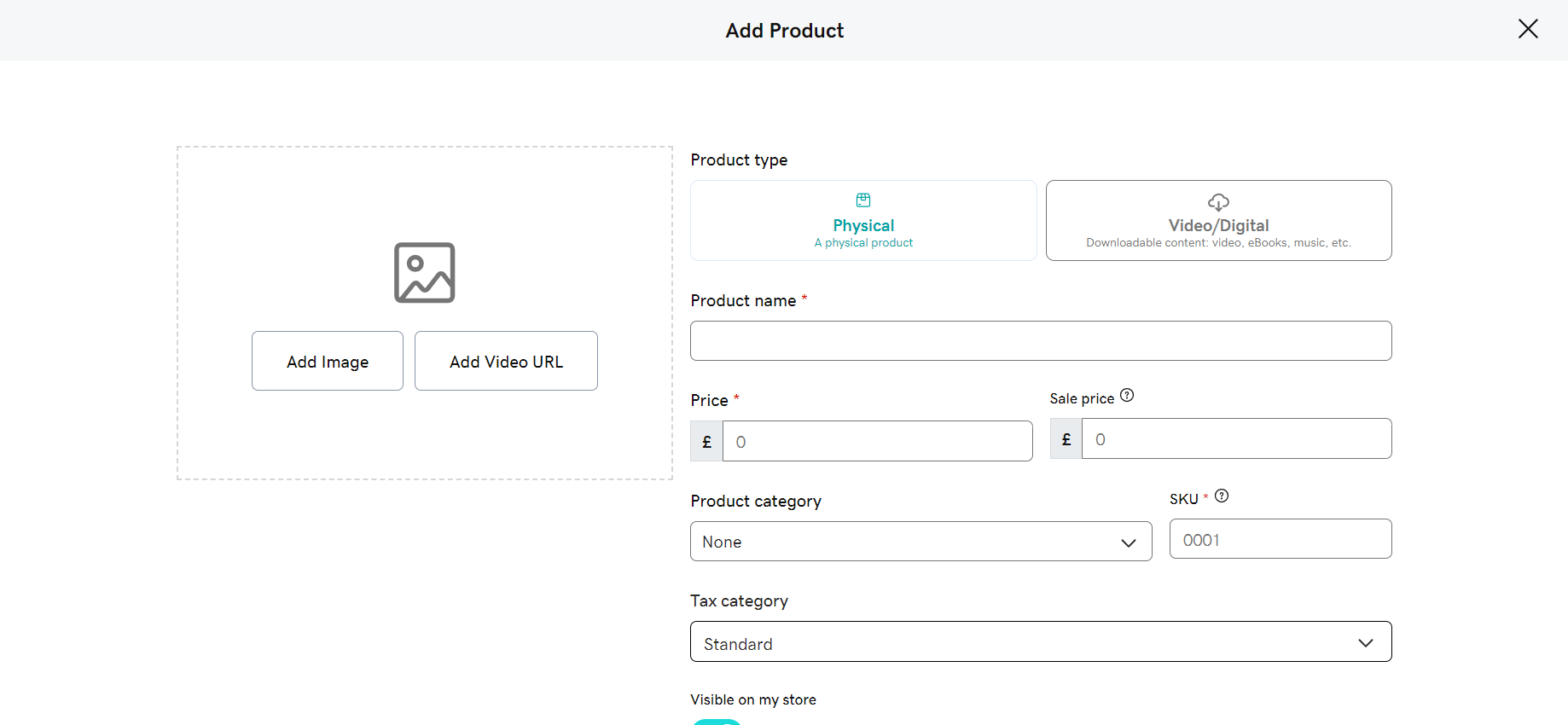
iPage ecommerce features:
- Inventory Management and Tracking
- Coupon Codes and Promotions
- SEO Tools
- PayPal Integration
Ecommerce themes & templates
GoDaddy offers around 70-80 ecommerce themes that cover diverse industries and styles. These themes are generally mobile-friendly with basic customization options. However, extensive design changes might require coding knowledge. iPage offers a variety of ecommerce-specific templates integrated with features such as shopping carts, product catalogs, and payment processing options. However, users might find some limitations in terms of customization and advanced ecommerce functionalities.
Product page customization
GoDaddy offers basic customization options like editing content, adding images, and adjusting layouts. For advanced customization, coding knowledge is required. Additional features include managing product variations, organizing information with tabs, and implementing discount codes and promotions directly on the page. iPage offers a range of product page customization options, allowing users to design their storefronts with various templates, adjust layouts, and incorporate multimedia elements. However, there may be limitations in advanced customization or coding for those who require unique, highly tailored functionalities.
Payment processing
GoDaddy Payments provides a versatile solution for online, in-person, and phone payments with a tiered pricing structure. However, it may lack advanced Point of Sale (POS) features and specific integrations with shopping carts or CRM systems. iPage supports several payment options for eCommerce, including major gateways like PayPal, Stripe, and others. However, it does not explicitly mention integrated POS capabilities for in-person transactions.
Website Editors
Website EditorsEvaluates the platforms’ website building and editing capabilities.Score Components:
- Customization tools (40%): Range and power of editing features.
- Editor usability (30%): User experience within the editor.
- Design flexibility (20%): Freedom in layout and design changes.
- Update and maintenance ease (10%): Simplicity of updating and maintaining the site.
 6.7
6.7
 6.8
6.8
🏆
Winner: iPage
. iPage, with a score of 6.8, offers a user-friendly website builder editor designed for ease of use, catering to both beginners and those with some web design experience. It offers a drag-and-drop interface, allowing users to easily add, remove, and customize elements on their web pages without needing to code. Users can choose from a variety of templates that are responsive and customizable to fit their brand or personal style. Additionally, the editor includes features for adding social media links, integrating e-commerce functionalities, and optimizing for search engines, making it a versatile tool for creating a wide range of websites.
GoDaddy’s editor, scoring 6.7, is a user-friendly drag-and-drop tool enabling website creation without coding. It offers pre-designed templates, a mobile-friendly interface, basic SEO tools, and ecommerce integration, making it accessible for beginners, with affordable pricing plans and an all-in-one solution. However, it has some design limitations, basic features compared to dedicated platforms, a learning curve for extensive use, and potentially limited third-party app integrations.
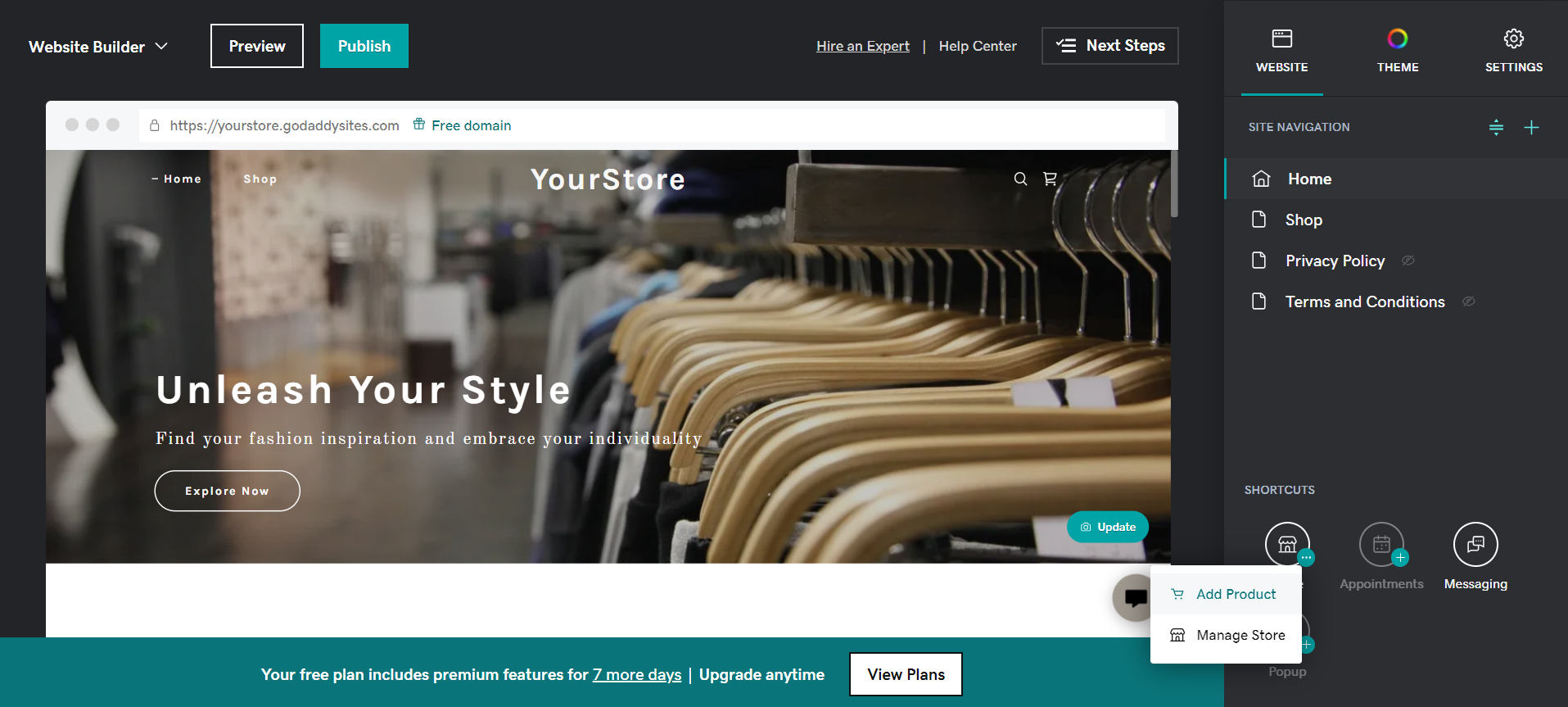
Mobile editor/app
 5.5
5.5
 5.0
5.0
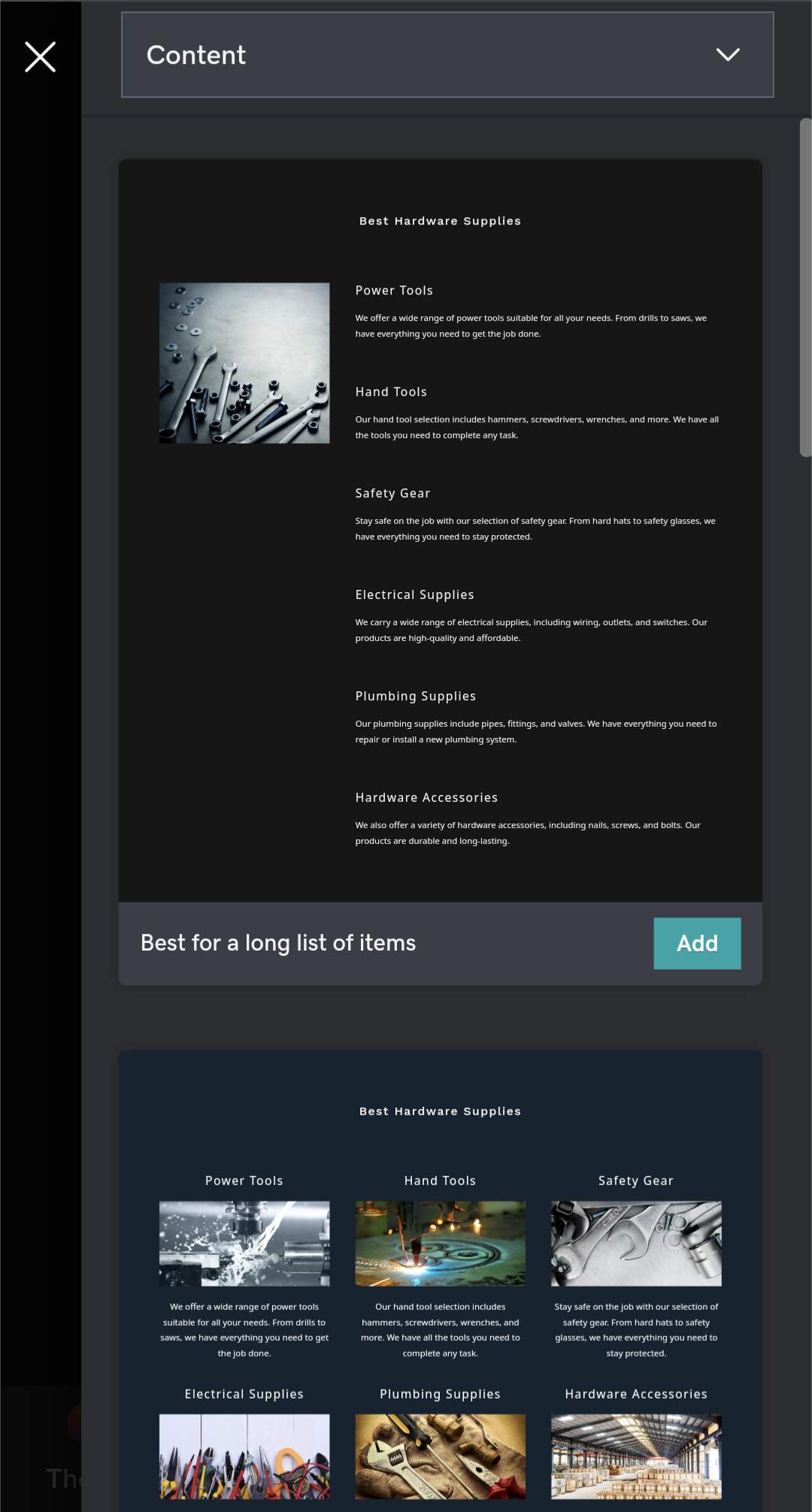
🏆
Winner: GoDaddy
. Both GoDaddy and iPage do not offer a dedicated mobile app for editing websites. However, users can log into their accounts and access the website builder through a mobile web browser. While the experience might be slightly more constrained on a smaller screen, GoDaddy provides a slightly better mobile editing experience, as reflected in its higher mobile editor score.
iPage, on the other hand, also allows website editing on a mobile browser, but with some limitations, and its mobile editor score is slightly lower than GoDaddy’s.
In summary, GoDaddy receives a higher rating due to its better mobile editing experience, while iPage also allows mobile editing but with some limitations.
Product testing options
Product Testing OptionsAssesses the options for trying out platform features before commitment.Score Components:
- Trial quality (40%): Extent and usefulness of the trial or free version.
- Feature accessibility (30%): How many features are available to test.
- Trial duration (20%): Length of the trial period.
- Ease of transition (10%): Smoothness of moving from trial to paid plans.
 8.1
8.1
 2.5
2.5
Overall Result
:
GoDaddy Wins
. GoDaddy scores 8.1 in product testing options, significantly higher than iPage’s 2.5. GoDaddy offers a free version and a 30-day money-back guarantee, allowing users to explore all features of any paid plan and get a full refund if not satisfied. iPage, on the other hand, does not offer a free or trial version, but it does allow testing of all features during the 30-day refundable period.

|

|
|
|---|---|---|
|
Free Plan |
Yes |
No |
|
Trial Duration |
No (30-day money back guarantee) | No (30-day money back guarantee) |
|
Testing Premium Features |
Yes |
Yes |
Price
PriceLooks at the cost-effectiveness and value for money of each platform.Score Components:
- Plan value (40%): What each pricing tier offers.
- Transparency and clarity (30%): Clearness of pricing structures.
- Flexibility of plans (20%): Range of options to suit different budgets.
- Hidden costs (10%): Additional expenses not included in the plan.
 7.9
7.9
 7.3
7.3
GoDaddy and iPage offer similar pricing options, but GoDaddy has a slight edge in terms of value for money.

|

|
|
|---|---|---|
|
Free |
Free ($0/month): Build a basic website with limited templates, storage, and features. Ideal for testing the platform. |
No offering at this amount. |
|
$0-$8 |
Basic ($5.99/month): More templates, custom domain support, email marketing, SEO tools, social media integrations, analytics. Ideal for personal websites and small businesses. Value for price: 6.5 |
No offering at this amount. |
|
$8-$10 |
Premium ($9.99/month): All Basic features + blog, ecommerce with product listings and payments, advanced marketing tools, and analytics. Ideal for businesses with online sales or growing web presence. Value for price: 8.0 |
No offering at this amount. |
|
$10-$18 |
Commerce ($15.99/month): All Premium features + advanced ecommerce tools like cart recovery, discounts, reviews, memberships, and unlimited products. Ideal for businesses with significant online sales and complex product offerings. Value for price: 9.0 |
Basic ($15.99/month): Simple website or blog, 1 website, 10 GB SSD, free domain, managed WordPress, free SSL for 1st year. Value for price: 6.5 |
|
$18-$30 |
Pro ($19.99/month): All Commerce features + priority support, higher bandwidth, website security, and CDN. Ideal for businesses with high traffic and critical online presence. Value for price: 9.5 |
Choice Plus ($27.99/month): Multiple sites with storage, security, backups, 3 websites, 40 GB SSD, daily backups, domain privacy, malware scanning. Value for price: 7.5 |
|
$30-$34 |
No offering at this amount. |
Online Store ($32.99/month): Online selling with eCommerce tools, 3 websites, 40 GB SSD, store features like unlimited products and secure payments. Value for price: 8.0 |
|
$34+ |
No offering at this amount. |
Pro ($34.99/month): High traffic sites, advanced storage, 5 websites, 100 GB SSD, optimized for high traffic, enhanced security and backups. Value for price: 9.0 |
location. As a result in rare cases the prices displayed here can differ from the ones you see on their
websites.
Hosting quality
Hosting
qualityExamines the reliability and performance of the hosting solutions.Score Components:
- Uptime (40%): Consistency and reliability of website availability.
- Speed (30%): Loading times and performance.
- Bandwidth and storage (20%): Sufficiency of resources provided.
- Data centers (10%): Quality and distribution of hosting infrastructure.
 7.8
7.8
 7.7
7.7
🏆
Winner: GoDaddy
GoDaddy and iPage both offer a range of hosting services, but GoDaddy edges out with a wider variety of hosting types and a 99.9% uptime guarantee. iPage, while offering unlimited storage and bandwidth, lacks an uptime guarantee and may not meet the performance needs of high-traffic sites.

|

|
|
|---|---|---|
|
Do they offer hosting? |
Yes, included in all paid plans |
Yes, included in all paid plans |
|
Data Centers: |
Data Centers in USA, France, Germany and UK Cloud Services Through AWS |
2 data centers: US, Europe |
|
Type of hosting: |
Shared Hosting, VPS Hosting, Dedicated, WordPress Hosting |
Managed WordPress Hosting |
|
Uptime: |
99.9% |
99.9% |
|
Uptime Guarantee: |
Yes, 99.9% |
No |
Website Speed Optimization
Website Speed OptimizationEvaluates optimization of website loading timesScore Components:
- PageSpeed Score (30%): Google’s score indicating performance optimization.
- Loading Time (30%): The average time until a website is fully interactive.
- Mobile Optimization (15%): Optimization effectiveness for mobile devices.
- Resource Optimization (15%): Optimizing images, scripts, and other heavy resources.
- CDN Usage (10%): Use of CDN to enhance speed across geolocations.
 7.6
7.6
 7.4
7.4
🏆 Winner: GoDaddy
Both GoDaddy and iPage have made significant efforts to optimize their website speed, but GoDaddy’s comprehensive strategies and better performance in different hosting plans give it a slight edge.

|

|
|
|---|---|---|
|
Focus |
CDN, Automatic Maintenance, Resource Optimization |
Web Server optimizations, Caching, CDN, Database optimization, SEO optimization |
|
Load Times |
Shared Hosting: 2-4 seconds VPS Hosting: 1-2 seconds Dedicated Server: 0.5-1.5 seconds |
2.6s average |
|
Page Speed Scores Range |
Shared Hosting: 50-70/100 VPS Hosting: 70-85/100 Dedicated Server: 80-95/100 |
72/100 average |
|
Core Web Vitals Improvement |
Infrastructure upgrades, improved server infrastructure and data centers, effective caching mechanisms, image optimization tools, and automatic minification of code files |
LCP, FID, CLS improvements |
GoDaddy has implemented a comprehensive strategy for website speed optimization, including the use of a Content Delivery Network (CDN), automatic maintenance, and resource optimization. It has also enhanced its platform through infrastructure upgrades, including improved server infrastructure and data centers, resulting in faster loading times. Additionally, the implementation of effective caching mechanisms, image optimization tools, and automatic minification of code files contribute to a smoother user experience and improved Core Web Vital metrics. The website builder features optimized templates and code structures for efficient rendering, further enhancing overall performance.
On the other hand, iPage has focused on web server optimizations, caching, CDN, database optimization, and SEO optimization for speed optimization. It has also made improvements in the Core Web Vitals, including LCP, FID, and CLS. However, its average load time and PageSpeed score are slightly lower than those of GoDaddy, especially in the case of VPS Hosting and Dedicated Server plans.
Get a head start on website creation with AI
Create a custom website tailored to your business needs 10X faster with 10Web AI Website Builder!
Plugins and integrations
Plugins and integrationsMeasures the range and effectiveness of additional plugins and integrations.Score Components:
- Variety of options (40%): Range of available add-ons.
- Integration smoothness (30%): Ease of integrating plugins into the site.
- Quality of plugins (20%): Functionality and reliability of the options.
- Custom integration capabilities (10%): Support for custom or third-party integrations.
 7.3
7.3
 6.3
6.3
🏆 Winner: GoDaddy.
With a score of 7.3, GoDaddy offers a more comprehensive set of plugins and integrations compared to iPage, which scores 6.3. GoDaddy’s plugins extend functionalities across marketing, ecommerce, business productivity, and website security. On the other hand, iPage offers a variety of plugins and extensions, with options ranging from SEO tools to security enhancements. However, GoDaddy’s versatility and the vast WordPress plugin repository available for its Managed and Unmanaged WordPress Hosting give it an edge over iPage.
Marketing Features
Marketing featuresAssesses tools and options available for marketing.Score Components:
- SEO tools (40%): Effectiveness of SEO features.
- Marketing automation (30%): Availability and quality of marketing tools.
- Social Media integration (20%): Ease and depth of social media connectivity.
- Email marketing (10%): Quality and usability of email marketing tools.
 7.3
7.3
 7.2
7.2
🏆
Overall Winner: GoDaddy
. GoDaddy edges out iPage with a slightly higher marketing features score. Both platforms offer similar features, but GoDaddy’s tools are slightly more advanced, especially in terms of analytics and ad campaign management.

|

|
|
|---|---|---|
|
SEO Tools |
|
|
|
Email Marketing |
|
|
|
Blogging |
|
|
|
Social Media Integration |
Tools for social media linking and content sharing |
Integrated social media buttons and features |
|
Analytics and Reporting |
Basic analytics with more detailed insights on higher plans |
Option to integrate Google Analytics for comprehensive analytics |
|
Ads and Promotions |
Features to create and track online ads, including Google Ads |
Offers SEO, social media integration, email marketing, and promotional discounts |
Customer Support
Customer supportEvaluates the quality and availability of support options.Score Components:
- Response time (40%): Speed of support responses.
- Support quality (30%): Effectiveness and helpfulness of the support.
- Availability (20%): Range of support channels (phone, chat, email).
- Resource richness (10%): Quality of self-help and educational materials.
 8.5
8.5
 6.9
6.9
🏆 Winner: GoDaddy
. GoDaddy takes the lead in this category with a customer support score of 8.5, compared to iPage’s score of 6.9. GoDaddy offers 24/7 customer support through multiple channels, including phone, live chat, and email. They also provide a community forum for users to connect and share solutions. For enterprise customers, GoDaddy offers dedicated account managers and priority routing for quicker issue resolution.
iPage also offers 24/7 customer support through phone, email, and live chat. However, they do not provide any additional support for enterprise customers, which may limit their appeal to larger organizations.
Security
SecurityLooks at the platforms’ security measures and data protection.Score Components:
- Data protection (40%): Safeguards for user and customer data.
- SSL and encryption (30%): Implementation of secure connections.
- Compliance (20%): Adherence to industry security standards.
- Regular updates (10%): Frequency of security updates and patches.
 6.8
6.8
 7.5
7.5
🏆
Winner: iPage
. iPage takes the lead in security with a score of 7.5 compared to GoDaddy’s 6.8. iPage offers robust security measures including SiteLock, a comprehensive security suite that scans websites for vulnerabilities and threats, and automatically removes malware. Additionally, iPage provides Domain Privacy Protection, which shields personal information from being publicly accessible, and SSL certificates for secure data transmission.
GoDaddy, while offering a range of security features such as SSL certificates, malware scanning, and web application firewalls, falls short in providing comprehensive private data storage protection. Users seeking compliance with regulations like HIPAA or GDPR may need to consider alternative solutions.
AI Capabilities
AI capabilitiesMeasures the effectiveness of AI-driven features and tools.Score Components:
- Automation efficiency (40%): Impact of AI on streamlining processes.
- Personalization (30%): AI-driven customization for users or customers.
- AI-Assisted design (20%): Role of AI in website design and functionality.
- Data analysis (10%): Use of AI in interpreting user data and analytics.
 7.5
7.5
 3.0
3.0

|

|
|
|---|---|---|
|
AI Builder |
|
iPage offers an AI-powered website builder |
|
AI Ecommerce features |
AI-generated product descriptions, customer service tools, and digital ad creation |
|
|
AI content generation |
AI-generated product descriptions, customer service messages, and social media ads |
|
|
Additional AI features |
|
iPage’s AI features assist users in setting up their websites efficiently |
🏆 Winner: GoDaddy
. GoDaddy, with a score of 7.5, utilizes AI mainly to enhance the eCommerce experience and content generation. Its AI features focus on generating product descriptions, customer service messages, and social media ads. While GoDaddy does not have an AI builder, its AI capabilities are more comprehensive compared to iPage.
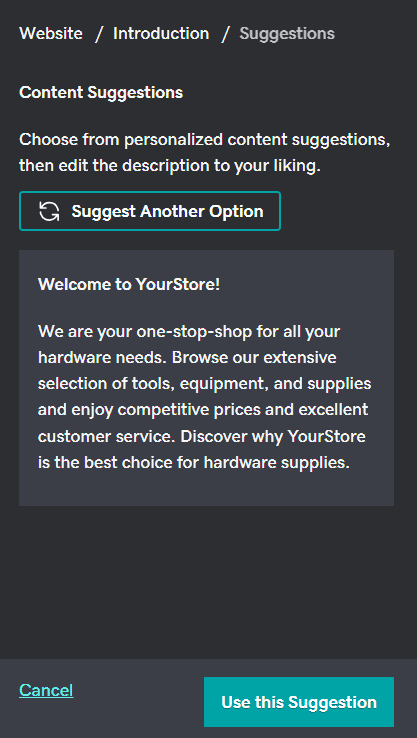
iPage, with a score of 3.0, offers an AI-powered website builder, making it easy for users to create and customize their websites. However, it lacks AI-powered eCommerce features and AI content generation tools. iPage’s AI capabilities are more focused on assisting users in setting up their websites efficiently.
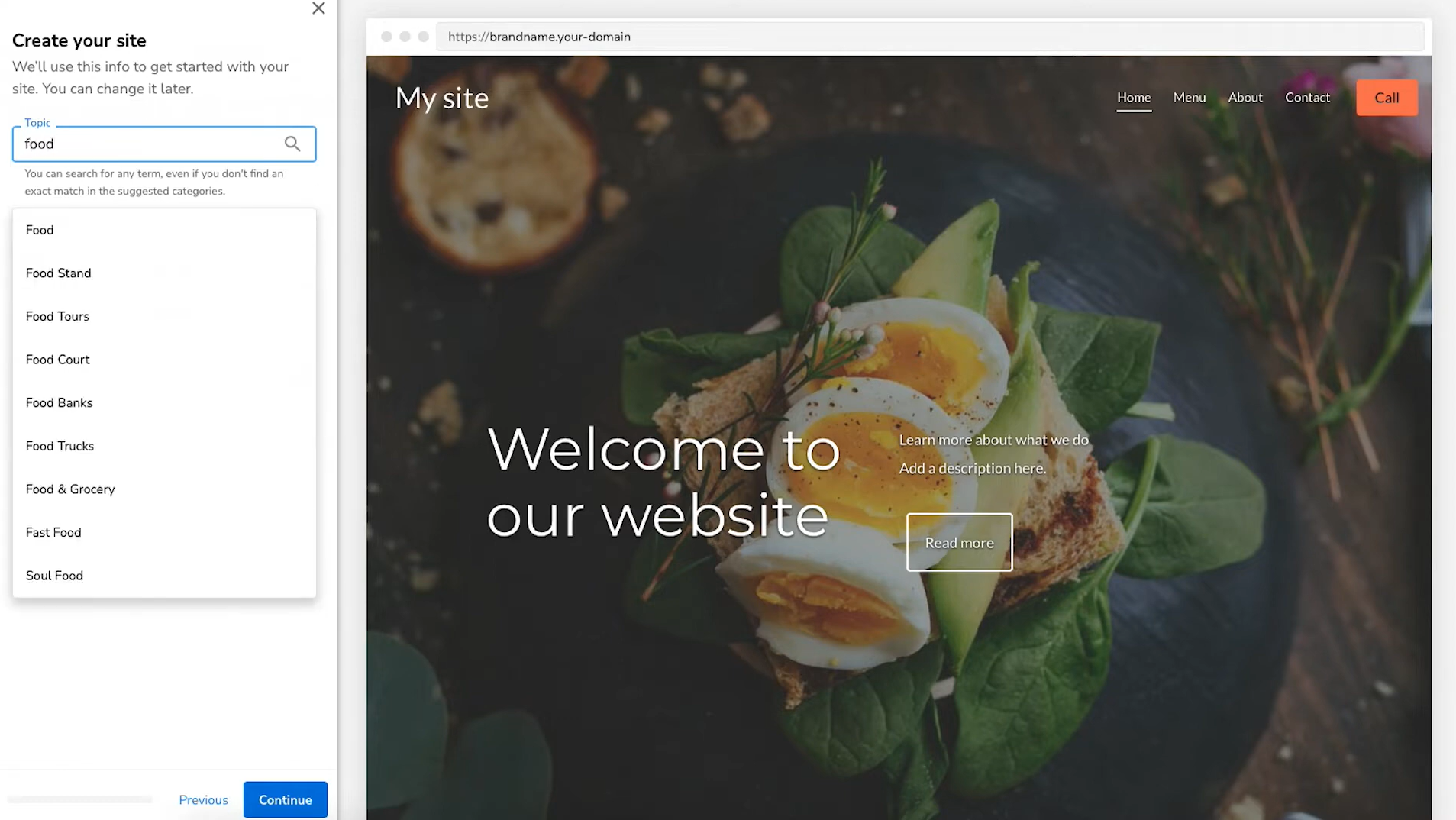
User Management
User ManagementAssesses the platforms’ capabilities in managing user roles, permissions, and accessibility.Score Components:
- Role Customization (40%): Flexibility in creating and defining user roles and
permissions. - Ease of Management (30%): User interface and tools for managing users.
- Access Control (20%): Effectiveness of access control measures for different user
levels. - Scalability (10%): Ability to manage a growing number of users efficiently.
 7.3
7.3
 3.2
3.2
🏆 Winner: GoDaddy
. GoDaddy offers more comprehensive user management features compared to iPage.
- GoDaddy allows up to five users with full editing permissions on its Deluxe and Ultimate plans, and unlimited users with customizable permission levels on its WordPress Hosting.
- iPage, on the other hand, offers very limited multi-user functionality and access levels.
GoDaddy User Roles and Access Levels:
| Role | Description | Access Highlights |
|---|---|---|
| Account Holder | The primary owner of the GoDaddy Website Builder account. | Full access to all website builder features, domain management, hosting settings, and account settings. |
| Delegate Access | Users granted permission by the account holder to access specific parts of the GoDaddy account. | Can be given varying levels of access, from managing domains and products to making purchases on behalf of the account holder. |
| Website Editor | Users with permissions to edit and update the website through the Website Builder interface. | Can customize the website, add or edit sections (e.g., image galleries, menus), and update content. |
| Online Store Manager | Specifically for websites with e-commerce capabilities, managing product listings, orders, and payments. | Access to manage the online store, including product listings, coupons, shopping cart, shipping, and payments. |
iPage does not provide information about user roles and access levels.
Additional Features

|

|
|
|---|---|---|
|
SSL Certificate |
|
|
|
Custom Domain |
|
|
|
Free Custom Domain Included |
|
|
|
International Domains |
|
|
|
Mobile Responsive |
|
|
|
Page Speed |
|
|
|
Website Builder Mobile App |
|
|
|
Convert a Website To An App |
|
|
|
Website Analytics |
|
|
|
Multilingual Sites |
|
|
|
Multiple Users |
|
|
User Feedback
GoDaddy users generally appreciate its affordability, reliability, and user-friendly interface, especially when it comes to domain registration and hosting services. However, some users have expressed concerns about occasional interface changes, perceived slowness in website hosting, and dissatisfaction with pricing increases.
Unfortunately, there is no user feedback summary available for iPage at this time.
The making of this blog
We followed a clear, step-by-step process to write and research this article.
FAQ
Which platform is better for ecommerce, GoDaddy or iPage?
Can I use GoDaddy and iPage for creating informational and business websites?
How do GoDaddy and iPage compare in terms of website speed and hosting quality?
Which platform offers better customer support, GoDaddy or iPage?
Are GoDaddy and iPage secure platforms for building websites?










